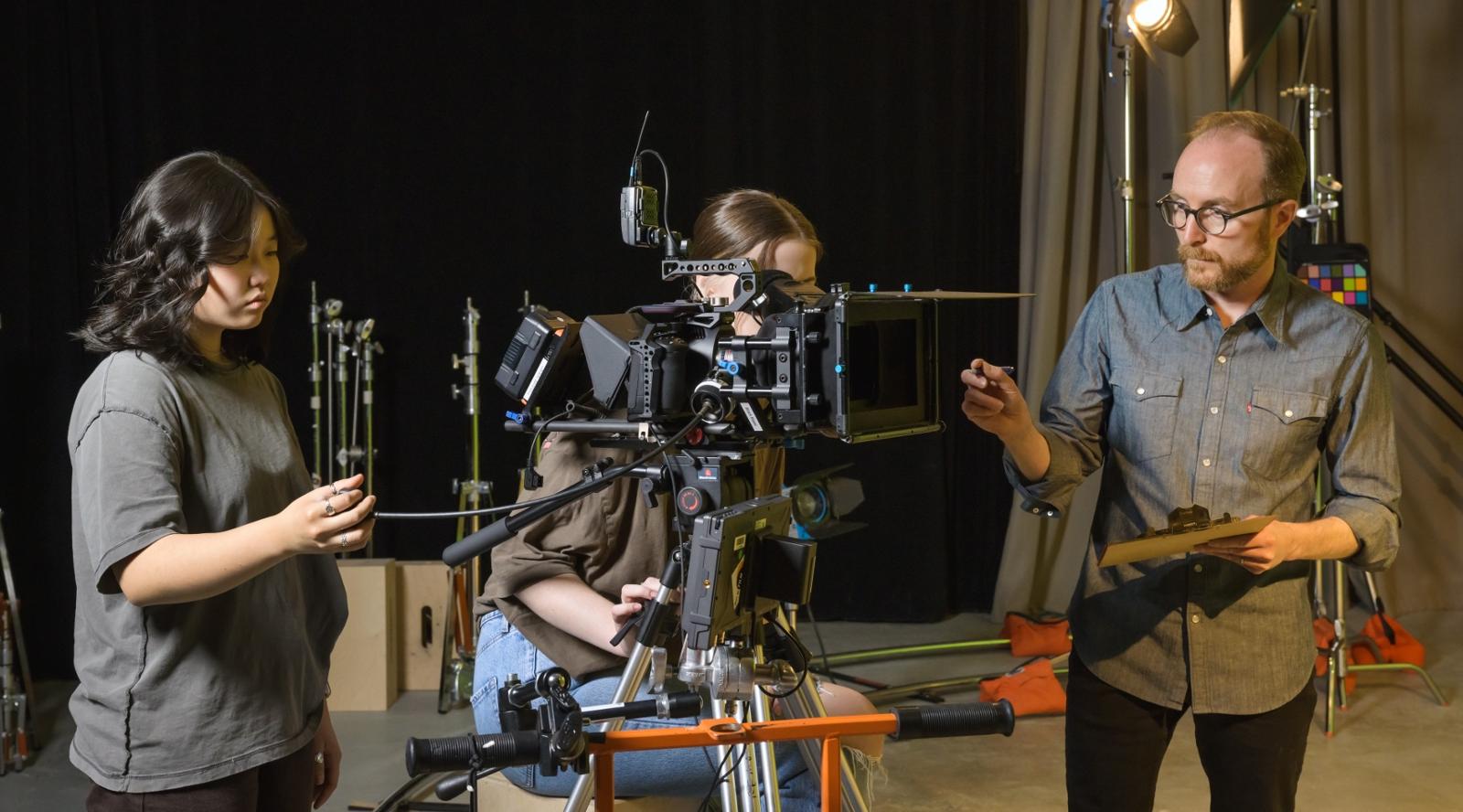
Film Studies (MA)
The Master of Arts (MA) in Film Studies is a 30-credit hour program designed for advanced studies in cinema and media history, theory, and methods, emphasizing current concepts, issues, and trends. Avenues of exploration could include national and transnational cinemas, directors, genres or other contemporary approaches (feminist, post-colonial, Indigenous, queer) across the full range of media such as dramatic, documentary, animation and experimental cinema; broadcast media; new media and interactive media. The program aims to develop broad expertise and critical thinking while enabling students to focus their interests through core courses in theory and methods, seminars and specialized directed readings.
Quick Facts
Connect with us
Film Studies Meet Your Faculty
Why Study Film Studies at the University of Regina?
The Department of Film teaches film and digital media in an interdisciplinary environment. Through our commitment to quality education, we shape dynamic graduates by exposing students to a wide range of learning experiences and practices in studies and production. Our programs prepare students to realize their paths as critics, historians, educators, curators and craftspeople in the media industries.
The Master of Arts in Film Studies is taught by faculty members who are actively engaged in scholarly and creative projects.
The Media Studies graduate program is part of the legacy of one of the Department of Film’s founders, the legendary German-American editor, film historian, and Oscar winner Jean Oser (1908-2002), who played a key role in the birth of German Expressionism.
Professional placement
The professional placement course offers a practical opportunity for experiential research or case study investigation. Students work on-site at arts and culture organizations, such as galleries, cinematheques, theatres, and government offices.
Expert professors and instructors
All of the professors in the Faculty of Media, Art, and Performance are recognized scholars, artists and professionals in their fields, including:
Film Studies, National and International Cinemas, Film Production, Media Studies, Visual Arts, Theatre, Music, Indigenous Studies, Interactive Media and Performance, Communication Studies, Curatorial Studies, and Popular Culture.
Film Studies Frequently Asked Questions
Candidates for the MA must hold a BA Honours degree in Film or Media Studies, or the equivalent, and must submit a proposal (three to five pages) stating clearly the degree to be obtained and describing the intended focus of their thesis. The proposal should provide a synopsis of the thesis topic and provide the background, rationale, and a review of the relevant literature. Applicants must provide scholarly writing samples, such as an essay from an undergraduate course, an honours thesis, a blog, etc. The online application form is available from the FGSR website.
The following will be taken into consideration:
- Quality of the intended focus of study
- Undergraduate academic record of achievement (minimum GPA of 75%)
- Ability of the student to succeed at an advanced level
- Reference letters
- Willingness of the faculty to supervise
Applicants must fulfill all the requirements listed under Application Procedures on the FGSR website.
Application deadline here.
Learn more about English Language Requirements.
FILM 804 Critical Investigations in Film
This course focuses on theoretical approaches to cinema and new media from aesthetic, cultural, anthropological, psychological and sociological viewpoints. It provides an understanding of the interrelationship between film/film-making and reality, other media arts, and the audience. Topics include Post-Colonialism, Art/Film Installation, Expanded Cinema, Narrative Theory, Arab/African Cinema, Censorship, Propaganda/Surveillance, and Psychoanalysis.
FILM 810AA-ZZ Topics in Film Studies
Selected topics in Film Studies.
MAP 800 Seminar in Theory and Methods I
Seminar exploring and questioning the history, theory and aesthetics of Fine Arts, and the diverse and shifting conceptions of Fine Arts disciplines in relation to other social and cultural forms.
MAP 804 Seminar in Media, Art, and Performance
This seminar course addresses thematic research strengths in the Faculty in order to provide students with a deeper exploration into topics within media, art and performance. Thematic seminar topics will relate to Popular & Visual Culture; Gender, Sexuality, and Culture; Social and Community Engagement; Indigenous Arts and Culture; or Curatorial Studies and Cultures of Display.
FILM 901 - Thesis Research
Research supporting media studies resulting in the writing and defence of a graduating thesis of 60-100 pages.
MAP 899: Graduate Level Professional Placement
The Professional placement course offers a practical opportunity for experiential research or case study investigation.
- National Scholarships (including Tri Council funding)
- Awards to Study Abroad
- FGSR Funding/Special Awards
- Funding for Indigenous Students
- Funding for International Students
- Other Awards and Scholarships
- External Scholarship Opportunities
- External Student and Faculty Awards
- Living Skies Student Film Festival
- MAP Presentation Series
- DRS Doctoral Research Showcase
- Music ensembles
- Humanities Research Institute events, seminars and conferences
- Art for Lunch
- 5th Parallel Gallery activities
- Theatre Productions
- Living Heritage Speaking Series
- Conferences and symposia on contemporary themes organized by faculty
What Can You Do With a Film Studies Degree?
Upon successfully completing your graduate program in media studies, you will be ready for the next step of your career. Our graduates have careers as festival programmers, researchers, archivists, educators and web designers. Some graduates have pursued doctoral degrees. These graduates have found employment at the University of Regina, the University of Nottingham Trent, the University of Waterloo, the Saskatchewan Filmpool Cooperative, Sakêwêwâk Artists Collective, and Sask Culture.
The jobs our graduates go on to include:
- University professor
- University instructor
- Film programmer
- Curator
- Gallery director
- Cultural policymaker
Related Programs
